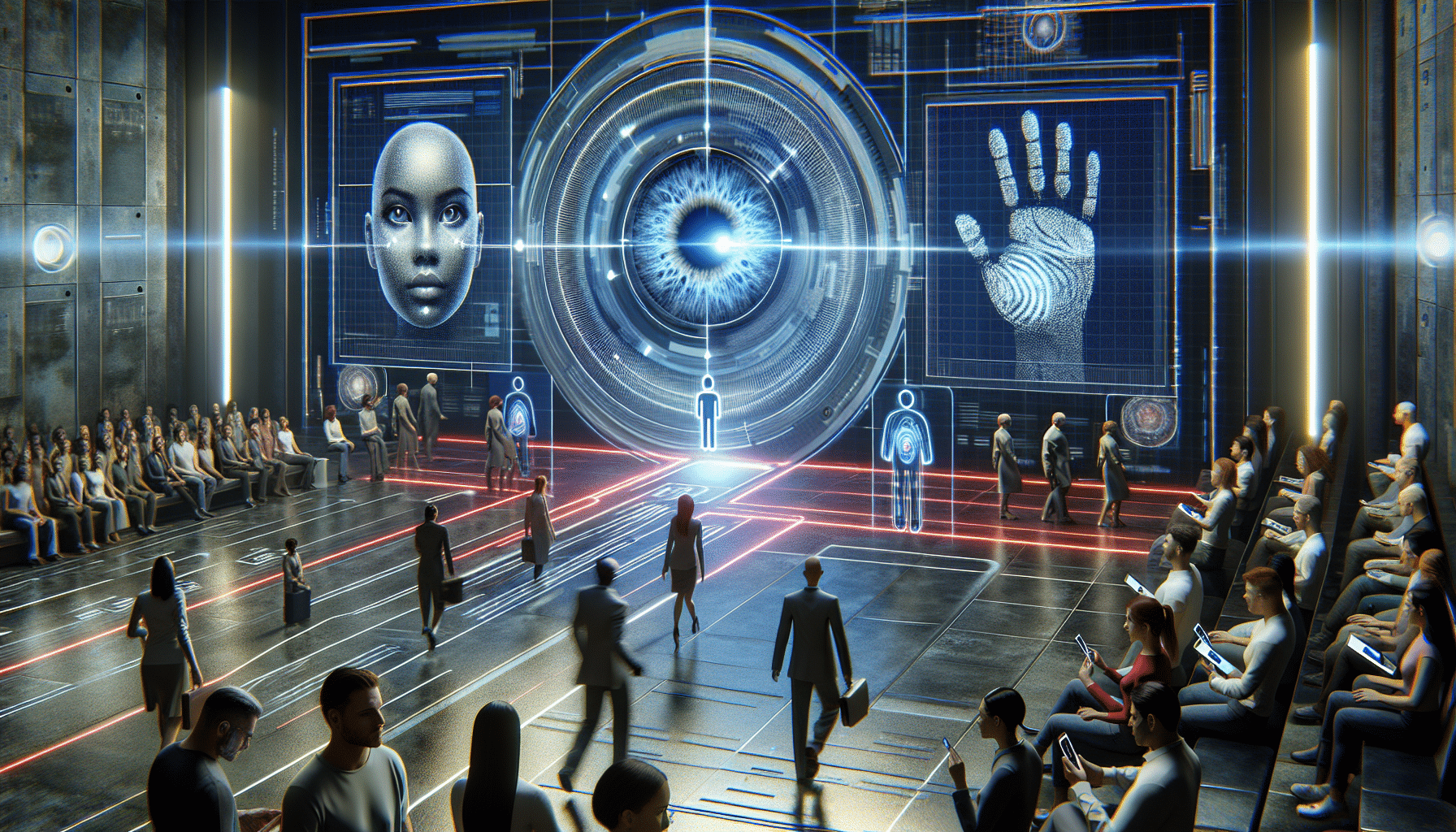Your Body, Your Password: Biometrics in 2024

Your Body, Your Password: Biometrics in 2024
In today’s world, we are used to using a variety of passwords to access our digital accounts – from simple numerical combinations to complex phrases. However, it seems like the days of typing in passwords may soon come to an end. Thanks to the advancements in technology and the rise of biometric authentication, our own body may become the key to unlocking our digital lives in the near future. In this article, we will explore how biometrics will revolutionize the way we secure our sensitive information in the year 2024.
Historically, biometric technology has been used for identification and surveillance purposes. From fingerprints to facial recognition, these technologies have been primarily used by law enforcement agencies. However, with the increasing demand for stronger and more convenient authentication methods, biometrics have made their way into the mainstream market. In 2024, biometrics will become the primary means of access control and digital security for individuals and businesses alike.
One of the most promising forms of biometric authentication is iris recognition. With more than 200 unique characteristics, an individual’s iris is nearly impossible to replicate, making it a highly secure method of authentication. Companies like Samsung, Microsoft, and Google have already started implementing iris scans as a means of unlocking devices and accessing accounts. In the year 2024, we can expect to see widespread adoption of this technology in everyday devices such as smartphones, laptops, and even smart home systems.
Another biometric technology that is gaining popularity is voice recognition. With the advent of virtual assistants like Siri, Alexa, and Google Assistant, voice recognition has become a widely accepted form of authentication. In 2024, voice recognition will not only be used for voice commands and hands-free operations but also as a means to access sensitive information and secure accounts. With advancements in natural language processing and machine learning, voice recognition will become more accurate and reliable as a form of authentication.
Perhaps the most controversial form of biometric authentication is facial recognition. While it has been widely used in law enforcement, the use of facial recognition technology for consumer applications has sparked concerns over privacy. However, with the increasing number of data breaches and the growing demand for more secure authentication methods, facial recognition is expected to become a mainstream biometric technology in 2024. From unlocking smartphones to authorizing payments, facial recognition will be seen as a convenient and secure alternative to traditional passwords.
With the rise of biometrics, the need for remembering a variety of passwords will become obsolete. This will not only save us time and effort but also make our digital lives more secure. Biometrics will provide a more personalized and unique form of authentication, ensuring that only we have access to our digital assets. Moreover, these technologies will make it nearly impossible for hackers to breach our information. They would need to physically possess our biometric data to gain access, which is highly unlikely.
In conclusion, biometrics will become the future of digital authentication in 2024. With the convenience and security it offers, it is no surprise that more and more companies are embracing this technology. However, it is essential to balance the benefits with privacy concerns and ensure that proper regulations are in place to protect our personal information. As we move towards a more connected and digital world, our body will become our ultimate password, and biometrics will be the key to unlock it all.
In the year 2024, traditional passwords will become a thing of the past as biometric technology takes center stage. From iris and voice recognition to facial recognition, our own body will become the key to unlocking our digital lives. In this article, we will explore how biometrics will revolutionize the way we secure our sensitive information in the near future.
Biometrics have been used for identification and surveillance purposes in the past, but with the increasing demand for stronger and more convenient authentication methods, it has made its way into everyday devices. Companies have already started implementing iris and voice recognition as a means of unlocking devices and accessing accounts. By 2024, we can expect to see widespread adoption of these technologies in everything from smartphones to smart home systems.
Iris recognition, with over 200 unique characteristics, is highly secure and nearly impossible to replicate. This makes it an ideal form of authentication for individuals and businesses alike. On the other hand, voice recognition has become a popular means of authentication with the advent of virtual assistants like Siri, Alexa, and Google Assistant. With advancements in natural language processing and machine learning, voice recognition will become even more accurate and reliable by 2024.
Facial recognition, while controversial, is also gaining popularity as a biometric authentication method. While it has been widely used in law enforcement, the use of facial recognition for consumer applications has sparked concerns over privacy. However, as data breaches become more prevalent, and demand for more secure authentication methods increase, facial recognition is expected to become mainstream by 2024. It will be used not only for unlocking devices but also authorizing payments, making it a convenient and secure alternative to traditional passwords.
Aside from the ease and security biometrics offer, it will also eliminate the need to remember multiple passwords. This will not only save us time and effort but also make our digital lives more secure. Our biometric data is unique and personal, making it almost impossible for hackers to duplicate or replicate. This adds an extra layer of security, as they would need to physically possess our biometric data to gain access – a highly unlikely scenario.
In conclusion, biometrics will be the future of digital authentication in 2024. Its convenience and security will make it the go-to method for accessing accounts and securing sensitive information. However, it is essential to find a balance between its benefits and privacy concerns. As we continue to embrace a more digital and connected world, our body will become our ultimate password, and biometrics will be the key to unlocking it all.










